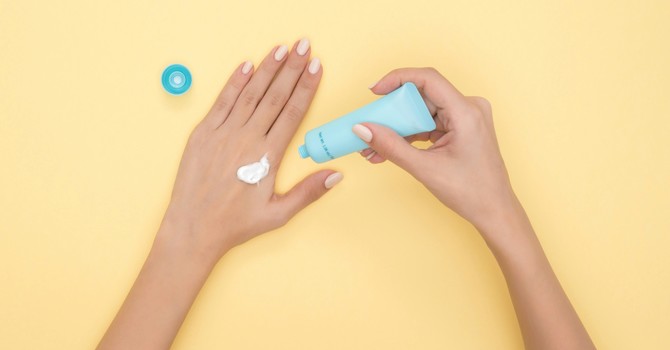
Stress is inevitable and typically natural, especially if a person is experiencing a challenging situation. However, too much of it, such as overwhelming stress, might have a negative impact on someone’s wellbeing.

Experiencing family conflict, unrealistic workloads, being in an unfamiliar situation, or something as simple as a job interview could cause some level of stress for a person. An extreme level of stress, especially to some extent, may cause emotional, mental, and even physical effects.
Did you know that some skin problems are caused by stress? Severe stress and psychological distress could also manifest in your skin if not addressed immediately.
According to the American Academy of Dermatology, board-certified dermatologist Keira Barr, MD, FAAD, says that “our brain and skin are intimately linked, and they communicate with each other.”
She explains that if a person experiences chronic stress, whether it is work-related or relationship-related, “the skin is both a target and a source of stress hormones, which can make the skin more vulnerable to itch, inflammation, irritation, and infection.”
Can Stress Make the Skin More Sensitive?
The answer is yes. Every time we feel stressed, our body releases chemicals or hormones, a.k.a., cortisol, that can cause inflammation. These changes make our skin more sensitive and could trigger flare-ups.
Other than inflammation, it could also impair resistance to infection and wound healing, as well as produce more oil and sebum. These could also lead to acne, eczema, psoriasis, rosacea, scalp rash, hives, hair loss, and hair thinning.
How to Prevent the Effects of Stress on Your Skin

As mentioned, stress is inevitable and part of our daily lives, but knowing how to handle the situation or spotting the signs could help you address the issue. Here are ways to deal with stress and, at the same time, improve your skin health.
1.Taking good care of your health. It may sound so easy, but as simple as drinking plenty of water and having a healthy and balanced diet, it will have a major effect on your body. Being hydrated helps maintain your skin's elasticity.On the other hand, consuming plant-based foods as well as fatty fish adds skin-healthy ingredients to the body.
2. Learning relaxation techniques Whenever you feel like stress is out of control, practice deep breathing, meditation, yoga, and even listening to music. Meanwhile, doing arts and crafts help you feel more relaxed and a way to de-stress your life.
3. Avoid vices. Other than the fact that vices such as alcohol and cigarette use can shorten your lifespan, these unhealthy habits will surely damage your skin and make you look older than you actually are.Instead, go out and get regular physical activity, even once or twice a week. It will not only make you fit but also improve your stress level, boost skin elasticity and collagen, and remove toxins.
4. Get Enough Sleep: Aim for 7-8 hours of quality sleep each night. Sleep deprivation can disrupt hormone balance and impair skin repair processes.
5. Establish a Consistent Skincare Routine: Cleanse, moisturize, and protect your skin daily with gentle, non-irritating products. A consistent routine helps maintain a healthy skin barrier and reduces vulnerability to stress-induced flare-ups.
The content in this blog is for informational purposes only and is not a substitute for professional medical advice, diagnosis, or treatment. Always consult your doctor or a qualified healthcare provider before trying new healthcare protocols.



